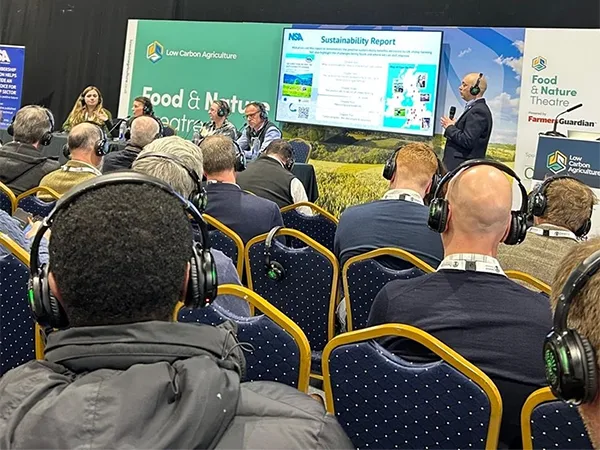
Pinstone are hap-pea to support Great British Pea Week 2023
This week – 3- 9 July – we’re supporting Great British Pea Week, a campaign that’s celebrating the efforts of all the hard-working growers, processors and retailers involved in producing these colourful and nutritionally packed additions to our everyday meals.
The idea originated from the British Growers Association's (BGA) 'Yes Peas' campaign. It coincides with the start of the pea harvest, which lasts six to eight weeks from early July.
During this time, billions of peas are harvested and make their way to families' tables.
Key pea facts:
- The UK is the largest producer and consumer of frozen peas in Europe.
- The average person in Britain eats nearly 9,000 peas per year.
- This July, around 700 pea growers will harvest 2 billion portions of peas to feed Britain for the entire year.
- The UK is 90% self-sufficient in pea production, according to ''Yes Peas'.
- Farmers use viners to harvest, shell and transport peas from field to frozen in just 150 minutes.
Written by...

Here are some reasons why we're proud to support Great British Pea Week 2023 at Pinstone.
They are just as good frozen as fresh
We love eating peas straight from the pod in summer. However, they don't lose nutritional value when frozen. This makes them a healthy and convenient addition to your diet year round.
They are frozen at their peak, preserving most nutrients. Just avoid overcooking them to maintain their bite, sweetness and nutritional value!
Try this simple delicious recipe: green pea and coconut soup. Add crumbly cheese and fresh herbs to top it off.
"This is simple, delicious and looks great on the dinner table because it is just vibrantly and ridiculously green!"
Peas are good for us and good for the soil
Peas promote great health benefits for us and the soil. As well as promoting great health benefits for us, peas do the same for soil health too.
Whether they are being grown in your garden at home or by farmers, peas capture nitrogen from the air as they grow and use this to flourish through the whole growing season, finally 'fixing' this into the soil.
Rebecca Beaumont from the Pinstone team uses peas as a break crop:
"As legumes, peas are great for our soil productivity. We often grow peas as a break crop which allows us to control weeds and build nitrogen in the soil. The peas are harvested and sold on to be used as cattle feed."
Britain's peas could help reduce import of soya
Defra believes peas could reduce the UK's soya imports. The UK imports about four million tonnes of soya annually, with half a million tonnes used for vegan and vegetarian foods, according to Innovate UK.
A £1million 'pea protein' project led by the John Innes Centre and seed company Germinal is aiming to produce peas that are 'tasteless' and can replace soya in plant-based foods. Read more: Innovative pea protein project aims to break soya habit

They are easy to grow at home
For anyone who hasn't grown peas before at home, you don't need a lot of space.
Peas are easy to grow at home. They can be sown in spring and early summer, even in pots, so long as you have given them a structure to climb up.
If you're tired of battling weeds in your garden, you can even consider using them as a cover crop which will smother them out of your growing space. An office favourite is the Terrain variety because it is super sweet and high yielding.
Because British produce is better!
We supported British Beef Week earlier this year. Like the beef industry, British pea growers are a brilliant source of low food miles and nutrition. They are also important employers.
Here is Laura Yates' favourite meal.

"This plate makes me hap-pea - home reared beef with locally grown peas, potatoes and tomatoes."
Find out more about Great British Pea Week here.
More recent insights

Open Farm Sunday – bringing comms strategy to life

What is regenerative farming?
